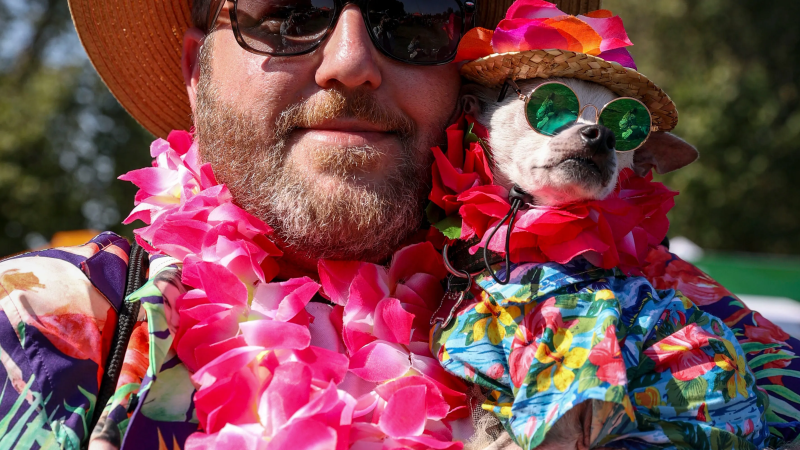Gen Z wants an inheritance. Good luck with that, say their boomer parents
If you’re expecting a life-changing windfall when your boomer parents die, take heed: Only one fifth of the “Me” generation expects to leave an inheritance.
A new study from Northwestern Mutual, the financial services company, finds a yawning gap between how many young Americans expect to reap an inheritance and how many older Americans plan to leave one.
Many young adults are pinning their hopes on the Great Wealth Transfer, a generational exchange of riches that could pass $90 trillion from boomers to their heirs over the next 20 years.
But many boomers have other plans.
The study found that 38% of Gen-Zers expect to inherit money or assets. But only 22% of boomers said they expect to leave an inheritance.

Gen-Z is counting on an inheritance for future prosperity
Millions of young Americans are counting on an inheritance to deliver them into prosperity. In the study, 54% of Generation Z said an inheritance is critical to achieving financial security and retiring in comfort.
They might want to check in with their parents. Only 11% of boomers said leaving something for the kids is their top financial goal. Another 35% said it’s “very important.”
The data come from Northwestern Mutual’s 2024 Planning & Progress Study, an annual research report based on a poll of 4,588 adults and released in August.
The notion of an “inheritance gap” separating boomer parents and their Gen-Z children evokes a raft of generational clichés.
One suggests that retirees of the “Me” generation have done plenty for their children, thank you, and want to spend their remaining years enjoying their money.
“A lot of older people are basically saying, ‘I’ve done my due,’” said Melissa Cox, a certified financial planner in Dallas. “They had to work their tuchus off for what they have. I’ve heard people basically saying, ‘I don’t want your financial plan to be my death.’”
Gen-Z children, meanwhile, might resent their parents for having it easy, for growing up at a time when houses were cheap and a dollar went further.
“There’s this group of younger people who are sort of aggravated with the boomers -- about how easy the boomers had it,” said Monica Dwyer, a certified financial planner in West Chester, Ohio.
The full story, of course, is more nuanced.
The typical senior with a retirement account has about $200,000 saved, according to data from the 2022 Survey of Consumer Finances for households in the 65-74 age range.
But only about half of those households report having retirement accounts at all. The other half might fear there will be nothing left after their death. Indeed, retirement experts say much of the Great Wealth Transfer may go to hospitals and long-term care facilities, as boomers confront the perils of old age.

Even affluent boomers fear they might run out of money
Even affluent boomers tend to go into retirement fearing they might run out of cash, financial planners say.
Let’s say you work with a financial adviser and craft a retirement plan that will provide for you and your spouse until age 90. But what if you live to 95?
“Nobody knows when they are going to die, and the idea of running out of money is rightfully terrifying to most people,” said Jonathan Swanburg, a certified financial planner in Houston.
Swanburg said many of his clients don’t set out to leave specific sums to their children, because they fear they might need the money for themselves. In the end, though, there’s usually something left over for the heirs.
“I see this on a regular basis. People leave behind more than they planned to, or more than they think they’re going to have,” he said.
Many boomer retirees fully expect to pass wealth to their children but balk at divulging their plans, experts say. In some cases, they fear their kids will pin their hopes on the inheritance.
“Leaving an inheritance to your children can absolutely screw them up, if they know it’s coming,” said Blake Harris, a Miami attorney who specializes in asset protection.
In other families, no one gets around to having a serious generational talk about what will happen when the parents die.
“Frankly, a lot of individuals don’t want to, or don’t know how to, have that conversation about wealth with the next generation,” said Rocky Fittizzi, wealth strategies adviser at Bank of America Private Bank.
Many aging boomers lack a proper retirement plan. Two-fifths of boomers have no will, according to the Northwestern Mutual report. Half of boomers said they don’t know how much money they will need for a comfortable retirement.

'Make that last check bounce'?
But here’s some good news for Gen-Z children, advisers say: Your boomer parents probably do want to leave you an inheritance, even if they don’t say it.
“I haven’t seen a set of grandparents or parents saying, ‘Hey, I don’t want our kids to receive anything,’” Fittizzi said.
He and other advisers say most clients fully expect to leave their estate to their children, or whatever remains of it after their passing.
Inheritance on hold?Most Americans don't understand the time and expense of probate
Boomers may joke about the idea of wanting to spend their retirement funds down to the last dollar before they die. But “that’s a really hard thing to do,” Swanburg said. After spending decades saving and planning for retirement, most boomers aren’t comfortable with the idea of dying penniless.
“Most people I’ve met over the years want to leave something,” said Brent Harris, a financial adviser at Northwestern Mutual based in Dallas. “I’ve never met anyone who wants their last check to bounce.”
“To go from having a million dollars to dying with 10 cents in the bank,” Swanburg added, “that’s something I’ve never seen.”
Disclaimer: The copyright of this article belongs to the original author. Reposting this article is solely for the purpose of information dissemination and does not constitute any investment advice. If there is any infringement, please contact us immediately. We will make corrections or deletions as necessary. Thank you.







